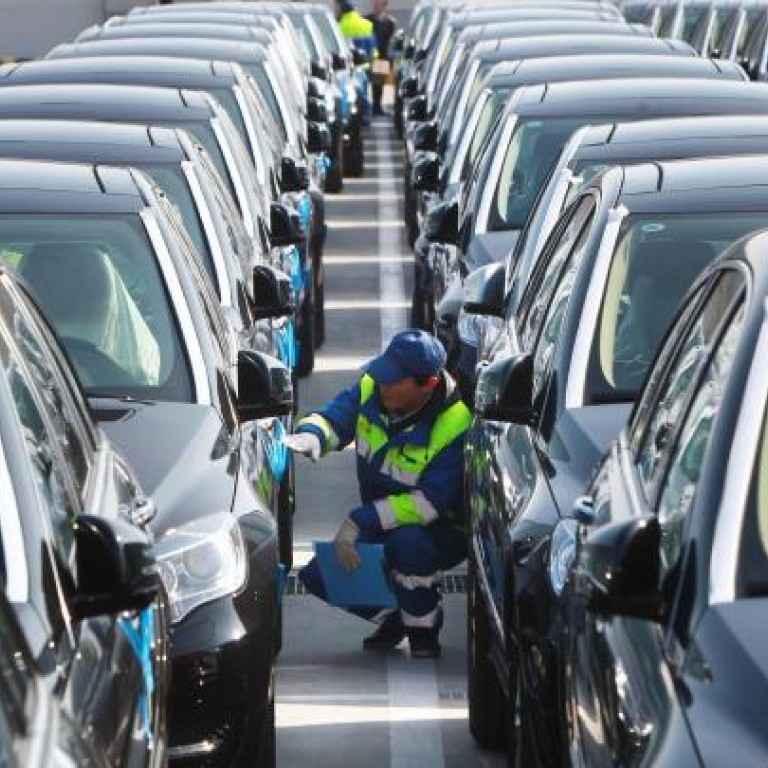
Free-trade Shanghai aims to create a 'mini-Hong Kong'
Shanghai has put its best foot forward in building the mainland's first free-trade zone, an ambitious project that demonstrates the city's increasing assertiveness in its bid to become a world-class metropolis.
The plan, aimed at eventually creating a "mini-Hong Kong" in the mainland's commercial capital, underlines the new city leaders' ambitions of transforming Shanghai into the envy of Asia amid China's rising economic might.
According to two government officials, the blueprint of the free-trade zone had received approval from the central government before acting mayor Yang Xiong unveiled the proposal in the government report delivered at the Shanghai People's Congress on Sunday.
Yang said Shanghai was expected to officially launch the project on a trial basis this year.
"It was not an empty promise," said an official who asked not to be identified. "City officials understand the difficulty of implementing the plan but are determined to realise the dream with years of effort."
A free-trade zone, or free port, is where customs authorities allow the flow of goods unhindered with zero tariffs on imports.
A typical free port is Hong Kong, the region's established financial, trading and shipping centre.
Shanghai has yet to map out a detailed plan for the free-trade zone, which could result in booming economic activity and rising affluence.
The acting mayor's statement on the zone signalled the city is aiming high, economists said.
In Hong Kong, there were mounting concerns that Shanghai's rise would dent its role as a financial centre while siphoning off foreign investors' interest.
Beijing has been cautious about establishing a free-trade zone for the past three decades as officials were spooked by fears that the authorities would lose their grip on the special area.
Xiamen, one of the four pilot cities to spearhead China's economic reform in 1980s, lobbied the central government to give it free port status more than two decades ago, in vain.
But Beijing has approved more than a dozen bonded areas, including three in Shanghai, which are prototypes of free-trade zones.
In a bonded zone, imported tariff-free goods are processed and re-exported abroad.
A free-trade zone, larger and more active in business transactions, could transform the economic prospects of the port city as goods and cash flow in freely.
"Pudong, as a national-level pilot area for comprehensive economic reforms, should pioneer the move to build a free-trade zone," said Zhou Hanmin, a vice-chairman of the Shanghai People's Political Consultative Conference, who is also a renowned economist. "Initially, the efforts should be focused on legislation, rule-setting and system-building."
Shanghai won't be able to build a free-trade zone unless it obtains endorsements from a clutch of state-level authorities all the way from customs, taxation, commerce and banking to the planning agency.
More importantly, concerns among top state officials about Hong Kong's prosperity and stability could turn out to be a major stumbling block for Shanghai.
Unlike the Qianhai development zone in Shenzhen, a testing ground for financial liberalisations, the rise of Shanghai could seriously affect Hong Kong's economy and businesses.
"The central government, in order to steady Hong Kong's nerves, is set to take a go-slow approach in building Shanghai's free-trade zone," said an official with the Pudong district government. "In the long run, Shanghai's rise can't be contained while Hong Kong has to better integrate itself into the Pearl River Delta to play a leading role in the regional economy."
Shanghai has a three-year action plan to enforce the free-trade zone plan, though it contains few details such as the actual size of the zone, the officials said.
Among the key proposals, the city officials envision financial liberalisations in the zone which include approval for the opening of foreign-denominated offshore bank accounts.
Those who have the accounts can be exempt from oversight and regulations by mainland banking and foreign-exchange authorities.
Shanghai would first upgrade the three bonded areas at the Yangshan deep-water port, Pudong airport and Waigaoqiao port during the trial run.
The economic output in the three bonded zones now account for about 7 per cent of the city's total.

